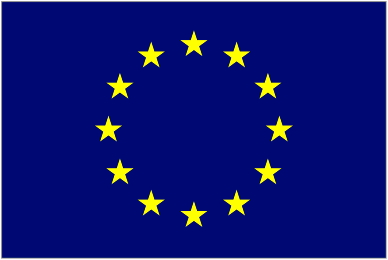BRUSSELS (AP) — European Union nations urged Britain on Friday to quickly exit the bloc and end uncertainty about the future, as Prime Minister David Cameron said he would leave the departure negotiations to his successor, possibly until sometime in October.
Britain’s vote to leave plunged the EU into a new existential crisis as it struggles to recover from economic woes, public disenchantment with Brussels-imposed austerity policies in debt-stricken Greece and Europe’s inability to manage the refugee emergency.
“We cannot afford to wait until the Conservative Party will find a new leader,” said Slovak Foreign Minister Miroslav Lajcak, whose country takes over the EU’s presidency next week and will have to supervise preparations for Britain’s departure.
Cameron’s fellow Conservative and Britain’s most prominent “leave” campaigner, Boris Johnson, said early Friday that “it is vital to stress that there is now no need for haste.”
But Dutch Foreign Minister Bert Koenders, who an EU meeting in Luxembourg Friday to prepare next week’s summit, said: “You can’t have your cake and eat it.”
“There is a clear plea from the majority of member states to speed this process up,” he added.
Still reeling from the U.K. decision, and with the pound losing value while markets shook, other top EU officials tried to put on a brave face despite having no clear idea how to negotiate the unprecedented departure of a member state.
They also warned Britain that it would remain a member, with all the obligations that entails, until the talks on leaving are over, which could mean more than two years longer.
The heads of the EU’s main institutions said in a statement that they want Britain to act on the vote “as soon as possible, however painful that process may be. Any delay would unnecessarily prolong uncertainty.”
The statement was signed by European Council President Donald Tusk, European Commission President Jean-Claude Juncker, European Parliament President Martin Schulz and Dutch Prime Minister Mark Rutte, whose country currently holds the EU’s rotating presidency.
They added that under the bloc’s treaties “EU law continues to apply to the full to and in the United Kingdom until it is no longer a member.”
Tusk told reporters that Britain’s 27 partners were “determined to keep our unity.” But, he said, “there’s no way of predicting all the political consequences of this event.”
He said EU leaders will meet without Cameron next week on the sidelines of a summit in Brussels “to start a wider reflection on the future of our Union.”
While he admitted that the last year has been one of the toughest in EU history, Tusk said: “What doesn’t kill you, makes you stronger.”
Schulz announced that the European Parliament would hold an emergency session Tuesday morning, hours before a two-day summit of presidents and prime ministers, to debate the next steps.
As if Britain’s departure wasn’t bad enough, Cameron’s resignation and decision to leave exit negotiations to his successor from October raised new worries about how long the process might drag on and possibly fuel the ambitions of others who might want to leave.
Once its intentions are officially notified, Britain would have two years to officially negotiate its departure, although London could be granted an extension if all 27 EU member states agree.
The head of the biggest bloc in the parliament fired an early warning shot, saying that Britain should expect no free ride as it negotiates its departure.
“There cannot be any special treatment for the United Kingdom. The British people have expressed their wish to leave the EU. Leave means leave. The times of cherry-picking are over,” European Peoples Party leader Manfred Weber said.
He insisted that the exit negotiations “should be concluded within two years.”
This insistence on a “hard exit” is aimed at discouraging other countries from wanting to leave the bloc in the belief that they might be able to negotiate a comfortable partnership from the outside.
Many European officials fear the U.K. vote will play into the hands of the far right and left and fuel calls for referendums in other countries.
The possibility to leave exists in the EU’s rule book, but it’s never been used before.
Whatever decisions are taken, the coming weeks and months will be frantic and uncertain, according to analysts.
“This summer will see the beginning of a tumultuous political crisis that will probably set many EU member states against one another, and will certainly reverberate around the world,” warned Giles Merritt from the Friends of Europe think tank.
Copyright 2024 The Associated Press. All rights reserved. This material may not be published, broadcast, rewritten or redistributed.

